The Impact of Epoxy Flooring on Pharmaceutical Manufacturing
In the pharmaceutical industry, where precision, safety, and cleanliness are non-negotiable, every aspect of the manufacturing process plays a crucial role in ensuring the highest standards of product quality. One often overlooked, yet incredibly important, element of pharmaceutical facilities is the flooring. Epoxy flooring has become an essential part of these environments due to its numerous benefits, ranging from enhanced hygiene to worker safety. This article delves into how epoxy flooring impacts pharmaceutical manufacturing, its benefits, and why it is considered a top choice for this industry.
Epoxy Flooring in Pharmaceutical Manufacturing
Epoxy flooring is a versatile and durable floor coating commonly used in industrial and commercial environments, including pharmaceutical manufacturing facilities. It consists of a resin and hardener mixture that creates a tough, seamless surface capable of withstanding heavy use, spills, and chemicals. In pharmaceutical manufacturing, where contamination and safety are paramount, epoxy flooring serves as an ideal solution due to its unique characteristics.
Epoxy flooring is created by mixing epoxy resin with a hardening agent, which results in a durable, strong, and resistant floor coating. The finished product is smooth, seamless, and capable of enduring high levels of wear and tear. Epoxy flooring is available in various formulations, including those with antimicrobial properties, slip-resistant textures, and chemical resistance—making it suitable for highly demanding environments like pharmaceutical manufacturing.
Pharmaceutical facilities require strict adherence to cleanliness and safety protocols to prevent contamination and ensure the quality of the products. Epoxy flooring provides an effective solution by offering seamless, easy-to-clean surfaces that prevent the accumulation of dirt, bacteria, and chemicals. This is essential in pharmaceutical manufacturing, where even a small breach in cleanliness can lead to significant risks and financial losses.
 Benefits of Epoxy Flooring in Pharmaceutical Manufacturing
Benefits of Epoxy Flooring in Pharmaceutical Manufacturing
Epoxy flooring offers numerous benefits that make it particularly well-suited for pharmaceutical manufacturing facilities. These advantages go beyond aesthetics and contribute significantly to the facility’s efficiency, safety, and compliance.
One of the most notable benefits of epoxy flooring is its durability. Pharmaceutical facilities often see high traffic, both from foot movement and heavy equipment, and the floors must endure significant wear and tear. Epoxy flooring is resistant to cracking, chipping, and damage from daily operations. This long-lasting feature makes it a cost-effective choice for pharmaceutical manufacturers, as it reduces the need for frequent repairs or replacements.
Maintaining a clean environment is vital in pharmaceutical manufacturing, where contamination can lead to serious safety concerns. Epoxy flooring is non-porous, meaning it does not absorb liquids or bacteria, which significantly reduces the chances of contamination. The smooth, seamless nature of epoxy flooring prevents dirt and grime from collecting in joints and crevices, making it much easier to maintain a sterile environment. Regular cleaning and disinfecting procedures are simplified with epoxy flooring, ensuring that the facility meets the highest hygiene standards.
Pharmaceutical facilities often deal with chemicals, solvents, and cleaning agents, making it essential for the flooring to withstand exposure to these substances. Epoxy floors are highly resistant to a wide range of chemicals, including acids, bases, and solvents commonly found in pharmaceutical manufacturing environments. This resistance helps protect the flooring from damage and maintains the safety and integrity of the space. Additionally, epoxy flooring can be customized with anti-static properties to prevent the buildup of static electricity, which can be a significant safety hazard in pharmaceutical manufacturing.
Easy Maintenance and Cost-Effectiveness
The low-maintenance nature of epoxy flooring is another key benefit. Unlike other flooring options that may require frequent waxing or special cleaners, epoxy flooring can be cleaned easily with a mop or scrubber. It is also resistant to stains, meaning that pharmaceutical facilities can maintain cleanliness with minimal effort. While the initial cost of installation might be higher than other options, the long-term savings in maintenance and replacement costs make it a wise investment for pharmaceutical manufacturers.
Epoxy Flooring in Compliance with Pharmaceutical Standards
Compliance with industry standards is critical in pharmaceutical manufacturing. The FDA and Good Manufacturing Practice (GMP) regulations require that facilities maintain high standards of cleanliness and safety, and epoxy flooring plays a key role in meeting these requirements. Epoxy flooring contributes to compliance with both FDA and GMP regulations by providing a surface that is easy to clean, chemical-resistant, and impervious to contaminants. By ensuring that the flooring maintains a sterile environment, epoxy flooring helps pharmaceutical manufacturers meet the strict standards set by these regulatory bodies.
Certain types of epoxy flooring include antimicrobial agents that prevent the growth of bacteria and fungi on the floor’s surface. This feature is particularly beneficial in pharmaceutical manufacturing environments, where contamination from harmful microorganisms must be avoided at all costs. Epoxy flooring with antimicrobial properties helps further reduce the risk of contamination, adding an extra layer of protection for workers and products.
The Role of Epoxy Flooring in Enhancing Worker Safety
Worker safety is a top priority in any manufacturing environment, and pharmaceutical facilities are no exception. Epoxy flooring offers a number of features that enhance safety for employees working in these high-traffic environments. One of the most common workplace injuries is slipping, and pharmaceutical facilities are no stranger to this risk. Epoxy flooring can be customized with slip-resistant additives that enhance traction, reducing the likelihood of slips and falls. This is especially important in pharmaceutical plants, where workers often move quickly and carry sensitive materials. Pharmaceutical manufacturing areas often involve the movement of heavy machinery, pallets, and large equipment. Epoxy flooring is designed to withstand impact from heavy objects, preventing cracks or damage to the floor. This durability ensures that the flooring remains intact even in high-traffic zones, where other flooring materials may wear out more quickly.
 Challenges and Considerations When Choosing Epoxy Flooring
Challenges and Considerations When Choosing Epoxy Flooring
While epoxy flooring is an excellent choice for pharmaceutical manufacturing, there are some factors to consider before installation. One of the main challenges with epoxy flooring is the initial cost, which can be higher than other flooring options. Additionally, the installation process can take time, especially in large facilities. However, these upfront costs are often offset by the long-term durability and low maintenance requirements of epoxy flooring. For epoxy flooring to perform well, it must be installed correctly. Improper installation can lead to peeling, cracking, or uneven surfaces. To avoid these issues, it’s important to hire experienced professionals who understand the unique requirements of pharmaceutical facilities.
Epoxy Flooring’s Role in Pharmaceutical Manufacturing
Epoxy flooring is a game-changer in pharmaceutical manufacturing, providing numerous benefits, including durability, cleanliness, chemical resistance, and compliance with industry regulations. Its ability to enhance worker safety and maintain a sterile environment makes it an invaluable part of pharmaceutical production. Though the initial investment may be higher than some other options, the long-term advantages make epoxy flooring a wise choice for pharmaceutical manufacturers looking to improve their facilities and meet the industry’s strict standards.

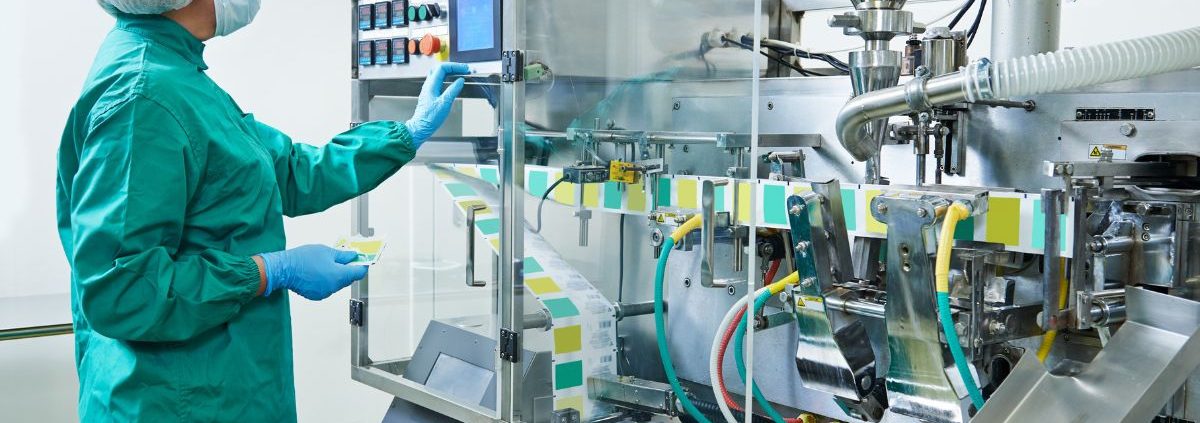
 Benefits of Epoxy Flooring in Pharmaceutical Manufacturing
Benefits of Epoxy Flooring in Pharmaceutical Manufacturing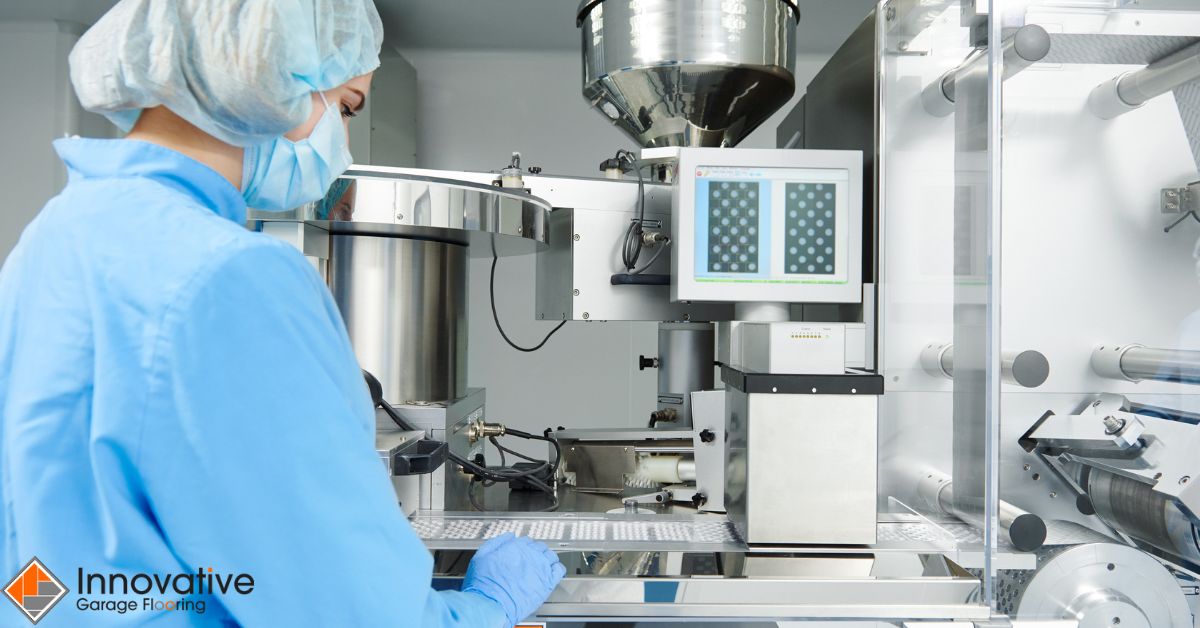 Challenges and Considerations When Choosing Epoxy Flooring
Challenges and Considerations When Choosing Epoxy Flooring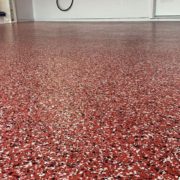

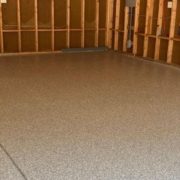
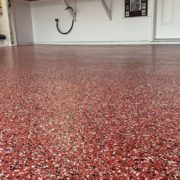







Leave a Reply
Want to join the discussion?Feel free to contribute!